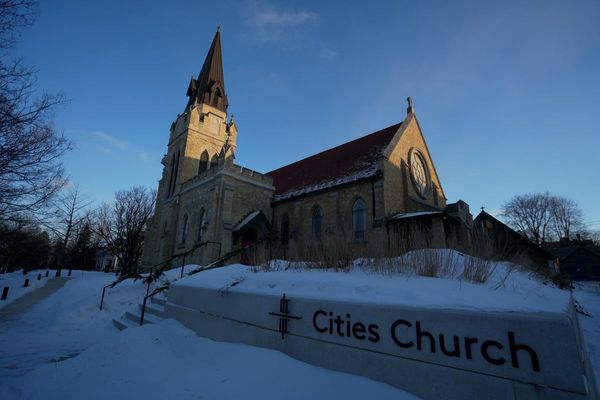
A man who was fined for setting fire to a Qur’an outside the Turkish consulate in London has won an appeal against his conviction after a judge backed his “right to offend”.
Hamit Coskun was found guilty of a religiously aggravated public order offence in June after shouting “fuck Islam” and “Islam is religion of terrorism” while burning the holy book in February.
Westminster magistrates court had found that Coskun’s actions were motivated at least in part by hostility towards Muslims due to prejudicial comments he made in his police interview. Coskun had argued his public criticism was of Islam in general rather than its followers.
In a legal challenge backed by the Free Speech Union and the National Secular Society, Coskun had the conviction overturned at Southwark crown court on Friday.
Mr Justice Bennathan said that while burning a Qur’an might be something “many Muslims find desperately upsetting and offensive”, the right to freedom of expression “must include the right to express views that offend, shock or disturb”.
Coskun, who is half Kurdish and half Armenian, was born in Turkey and lives in England.
After the ruling, Coskun said he had come to England “to be able to speak freely about the dangers of radical Islam” and was now “reassured that, despite many troubling developments, I will now be free to educate the British public about my beliefs”.
Robert Jenrick, the shadow justice secretary, who attended the hearing, said he did not agree with burning the Qur’an. But he added: “I don’t believe it’s a crime.”
He and other campaigners had argued the prosecution and conviction was akin to blasphemy being reintroduced “inadvertently, by our court service”. Blasphemy laws were abolished in England and Wales in 2008 and in Scotland in 2021.
Toby Young, the director of the Free Speech Union, said the ruling sent a message that “anti-religious protests, however offensive to true believers, must be tolerated”.
He added: “Had the verdict been allowed to stand, it would have sent a message to religious fundamentalists up and down the country that all they need to do to enforce their blasphemy codes is to violently attack the blasphemer, thereby making him or her guilty of having caused public disorder.”
The National Secular Society said the judgment was “an important victory for freedom of expression”, describing Coskun’s protest as a “lawful act of political dissent”.
A Humanists UK spokesperson said: “We are delighted and relieved to see Hamit’s conviction overturned.
“While we do not agree with the appellant’s prejudicial views about Muslims, he did not express these at the time of the act for which he was previously charged and the judge has now found he shouldn’t have been convicted.
“We are concerned that this case has highlighted gaps in the law that could allow vital free speech protections to fall by the wayside. We will continue to campaign to uphold the fullest freedom of expression laws limited only to prevent harm to others.”







